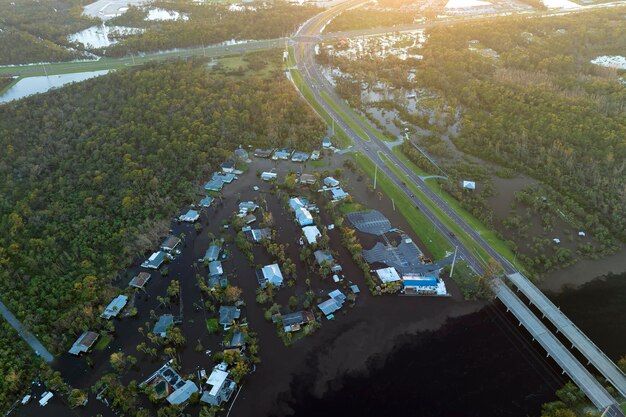How Climate Change is Shaping the Real Estate Landscape
Imagine buying your dream home only to find out that it's in the path of rising floodwaters or nestled in an area prone to increasingly intense wildfires. Climate change is no longer a distant threat—it is a real and present factor influencing the real estate market. Whether you're a homeowner, investor, or renter, understanding the effects of climate change on property values and availability is crucial.
Coastal Properties at Risk
With sea levels rising, homes along coastlines are facing the brunt of climate change. These properties are now seen as high-risk investments, leading to decreased demand and falling prices. As insurers pull back from providing coverage or significantly increase premiums, homeowners are left grappling with tough decisions about maintaining, selling, or even moving away from vulnerable areas. The impacts are profound, changing the appeal of waterfront living and altering the landscape of these previously coveted real estate spots.
Wildfires and Severe Weather Events
In areas prone to wildfires and severe weather, the real estate market is experiencing volatility. Increasing temperatures and changing precipitation patterns have extended fire seasons, with devastating effects on property. Communities in wildfire zones, and areas susceptible to hurricanes or tornadoes, are seeing insurers hesitating to offer coverage. Homebuyers are rethinking their strategies, preferring locations with a lesser likelihood of climate-induced disasters.
Renewable Energy and Sustainable Housing
On a brighter note, the climate crisis has sparked a renaissance of green real estate. Homebuyers and developers are prioritizing energy-efficient, sustainable building practices. Properties equipped with solar panels, green roofs, and efficient insulation are in demand, not just for environmental reasons but for potential cost savings over time. This shift towards sustainability is significant, transforming the real estate landscape as more individuals and governments push for lower carbon footprints.
The Economic Ripple Effect
The real estate market doesn't operate in a vacuum. Climate change impacts are rippling through economic structures, affecting affordability and access to housing. Regional disparities in climate effects lead to migration patterns that favor areas with perceived climate resilience. However, this migration can lead to increased housing costs and gentrification in these areas, changing the economic dynamics and posing affordability challenges.
Government Response and Financial Instruments
Governments worldwide are recognizing these shifts and responding with initiatives aimed at bolstering climate resilience. Various aid programs are being developed, providing financial assistance to homeowners and real estate developers keen on adopting sustainable practices. Tax incentives for renewable energy installations and grants for green building certifications are on the rise. Moreover, government-backed insurance pools are being explored to offer coverage where private insurers are withdrawing.
For individuals facing economic hardships exacerbated by these changes, there are options to explore. Debt relief programs and climate-focused credit solutions are emerging, designed to help those affected by climate-driven property challenges. Accessing educational grants can also aid professionals in transitioning into green building certifications and sustainable real estate expertise, creating a knowledgeable workforce ready to tackle climate's challenges.
Navigating the Changing Market
The real estate industry is at a pivotal moment, adapting to a climate-altered world. By understanding these shifts, individuals can better navigate the market, making informed decisions about where and how to invest. Emphasizing sustainability not only increases personal resilience but contributes positively to community stability and environmental health.
Explore Financial and Educational Opportunities 🌟
- 🌍 Government Aid Programs: Nationwide initiatives supporting climate resilience in real estate, offering grants and tax incentives for sustainable building.
- 💰 Debt Relief Options: Specialized programs for those impacted by climate change accelerating financial burdens, assisting in property-related debts.
- 🌿 Green Certifications: Educational grants for professionals to gain expertise in energy efficiency and sustainable real estate practices.
- 🔋 Renewable Energy Credits: Financial incentives for individuals and developers adopting solar and other renewable energy systems.
- 📈 Climate-Conscious Investments: Opportunities to invest in areas and ventures aligned with sustainability, reducing risk while supporting environmental goals.
Understanding climate change’s impact on real estate isn't just vital for today's decisions but is essential for future-proofing investments and homes against tomorrow's challenges.

